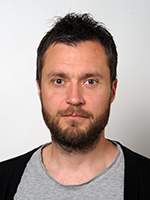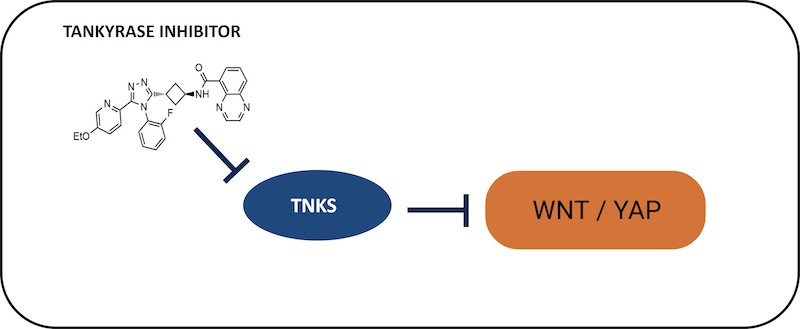Welcome to the homepage of Jo Waaler's research group: Cell Signaling and Drug Discovery

Group leader
The research group focuses on tankyrase 1 and tankyrase 2 (TNKS1/2), enzymes from the PARP family that regulate protein activity, interactions, and degradation through mono- or poly-ADP-ribosylation and downstream cell signaling. TNKS1/2 proteins are key players in the regulation of WNT/β-catenin and Hippo signaling pathways, which are implicated in various diseases, including cancer, immune evasion and fibrosis. Consequently, significant efforts have been dedicated to developing selective TNKS1/2 inhibitors.
Oslo University Hospital has established itself as a leading center for chemical biology and has developed a small-molecule TNKS inhibitor program. These inhibitors modulate several target proteins, such as AXIN1 and AXIN2 in the β-catenin destruction complex, thereby inhibiting WNT/β-catenin signaling, and AMOT proteins in the Hippo signaling pathway, leading to YAP signaling inhibition.

Our translational research aims to achieve the following objectives:
Main objectives:
- Identify TNKS-dependent diseases with high unmet medical needs, assess the effectiveness of TNKS inhibition, explore potential therapeutic applications, and investigate the underlying mechanisms of its treatment effects.
- Develop treatments for human use by advancing our preclinical drug candidate toward clinical trials, supported by the company Odin Therapeutics, and progressing toward clinical testing.
Sub-objectives:
- Investigate the effects and mechanisms of TNKS inhibition, both as a monotherapy and in combination therapies, on signaling pathways in cancer using cell culture and animal models.
- Examine how TNKS inhibition enhances sensitivity to metastatic melanoma immunotherapy in immune-competent mouse models.
- Assess the anti-fibrotic effects of TNKS inhibition in lung fibrosis using advanced methodologies, including cell culture, patient-derived samples, and animal models.
- Explore the impact of TNKS inhibition on anti-viral responses in mouse models and cell cultures.
The research group is also associated with the RCN Centre of Excellence (SFF) - Hybrid Technology Hub - Centre for Organ on a Chip-Technology: https://www.med.uio.no/hth/english/.
